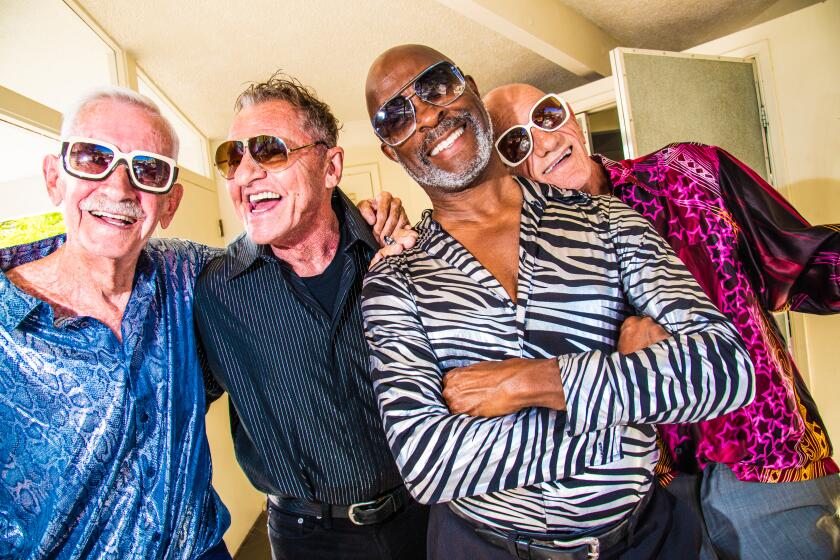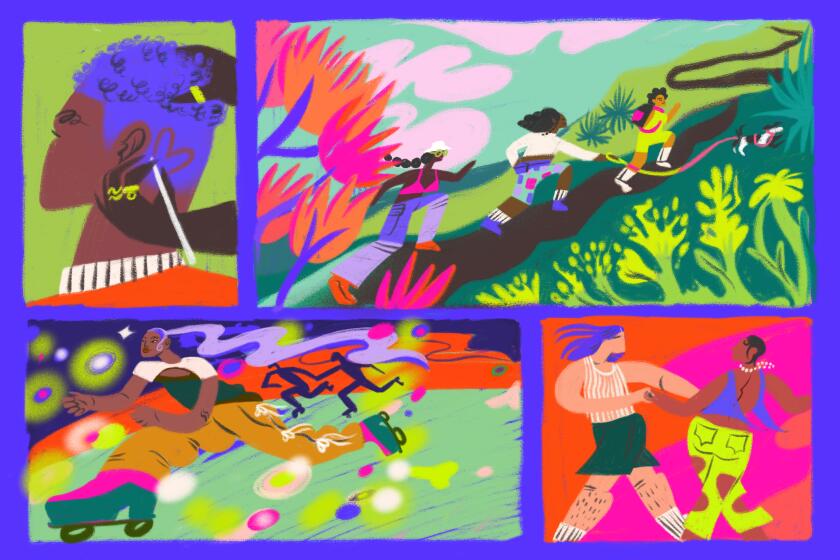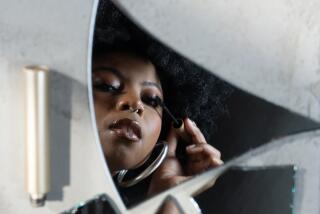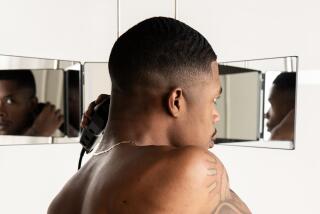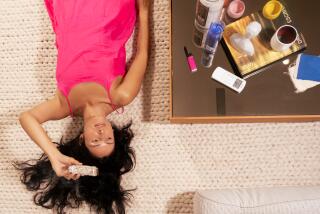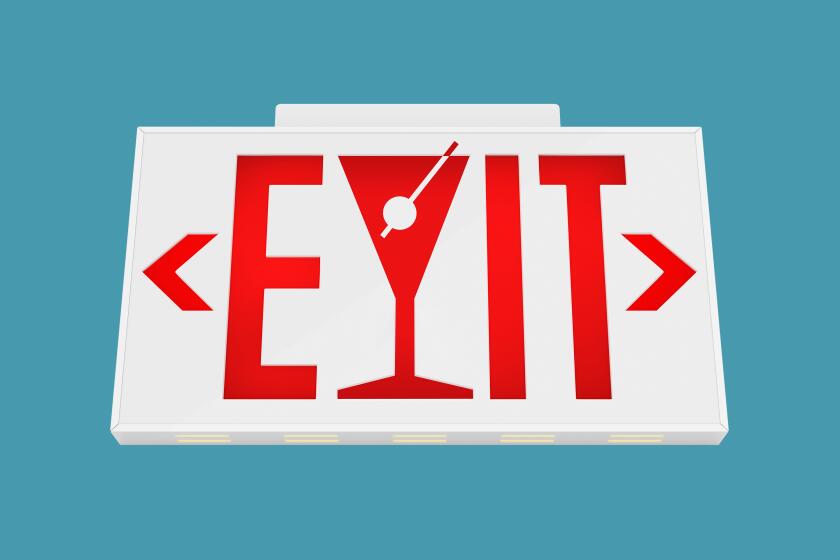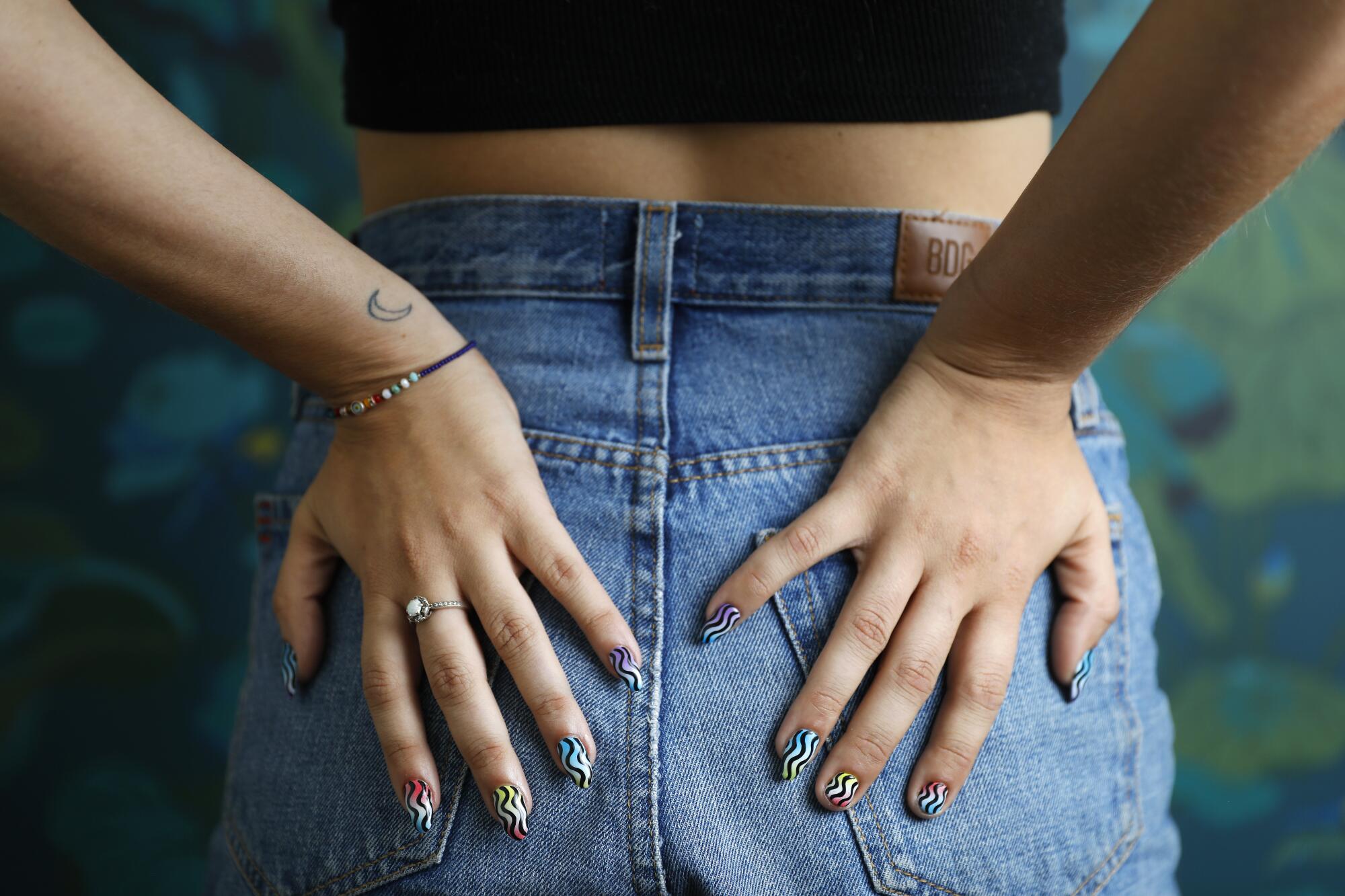
When I saw someone sporting a long, almond gel manicure with an ultra short index and middle finger on one hand, I was intrigued. My first thought was, “Oooh, love that.” My second thought, “Hmm, only two?”
The chic woman with the eye-catching mani was in a relationship with another woman. Her nails — done in a sex-friendly manicure style often referred to as a queer manicure, lesbian manicure or femme-icure/femmicure — felt subtle and loud at the same time, with strong “if you know, you know” energy.
“I think lesbian or queer women, we tend to look at hands immediately,” says Mina Quarterman, a Los Angeles based stand-up comedian and actor whose hands are usually front and center for work.
After Quarterman, who goes by Mina Q professionally, saw the short/long combo on a friend in 2021, she made her way to a salon for her own version of the increasingly popular set — which she and friends now call “the leisurely lesbian.”

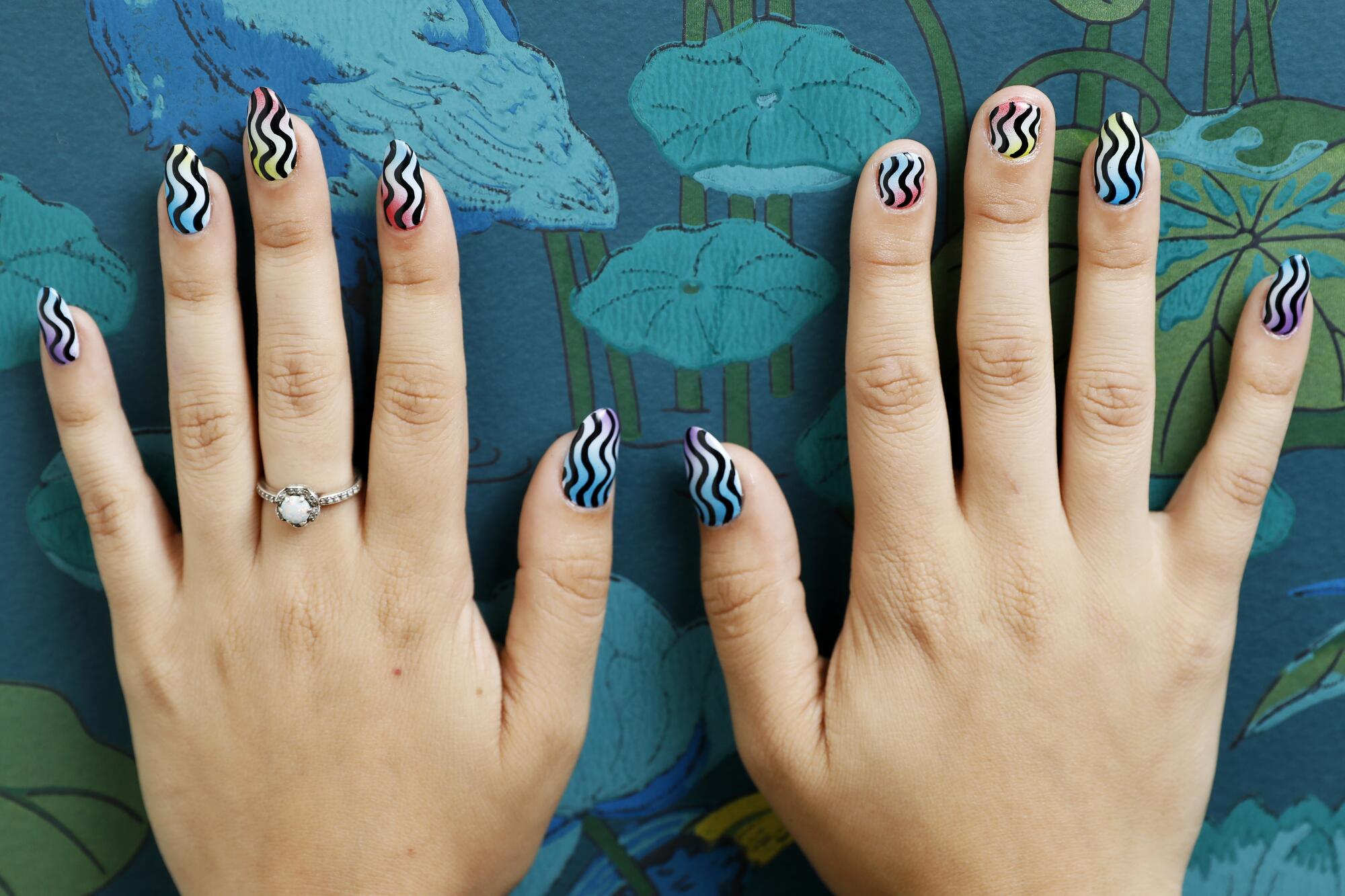
After exchanging jokes with her girlfriend during their joint appointment (“You’re gonna give me a hysterectomy with those things”) and fielding a couple confused inquiries from the manicurist, Quarterman left the shop delighted with lilac stiletto nails. Her index and ring fingers on both hands were extension-free, but as she notes in a TikTok video, you may want to omit extensions on your thumb as well, *wink wink.*
Scoping out someone’s nails isn’t just about gauging whether or not the person piquing your interest is gay, says Quarterman. Hands have long been a hot commodity.
“Just how women might look at a guy in gray sweatpants and be like, ‘What’s he working with?’ You’re looking at their hands like, ‘Are they longer, more skinny? Thicker? Shorter?’ Then it’s like, ‘What are the nails giving?’ I’ve talked to a lot of lesbians about this,” says Quarterman. “We’re not just looking at your face. We want to know how you feel about all of your body.”
The Old Gays have amassed more than 7 million followers on TikTok with delightful videos that bridge generational gaps.
Despite the oft-pushed narrative that gay women must have short nails (remember that “L Word” scene?), you can indeed be gay as hell with Cardi B-esque nails or whatever you want. There is no mandatory checklist, cookie-cutter style or way of being that qualifies you as truly queer. Just as other parts of who you are can take form in a multitude of ways, so too can queerness.
Kinsey Clarke, a nail enthusiast, emphasized a crucial point in the Canadian culture mag Flare: What’s widely viewed as mainstream gay culture (Read: Centering white people) translates differently in Black gay communities as well as other queer communities of color. For Clarke, there has never been tension between long acrylics, or “strap grabbers,” as some Black lesbians affectionately call them, and her sexuality.
Instead, long nails have allowed Clarke to partake in a cherished beauty ritual while also affirming her Black lesbian femininity. Though what’s been most satisfying is rocking whatever resonates with her — short, long, acrylics, natural, a queer manicure — and remaining untethered to perceptions of how a lesbian woman “should” present.
“There’s this weight on a lot of queer women and lesbians’ shoulders to look a certain way, to have their nails a certain way, and I think that it’s so much bull—. Do what you want, girl. Do your nails how you want,” Clarke says.
If concerns about your nails being “too long” or uncomfortable for a potential partner are an issue, there are options — like clipping them, putting cotton balls under your nails, using latex or a sterile glove intended for sex, says Clarke. “There are ways to both have your cake and eat it too.”
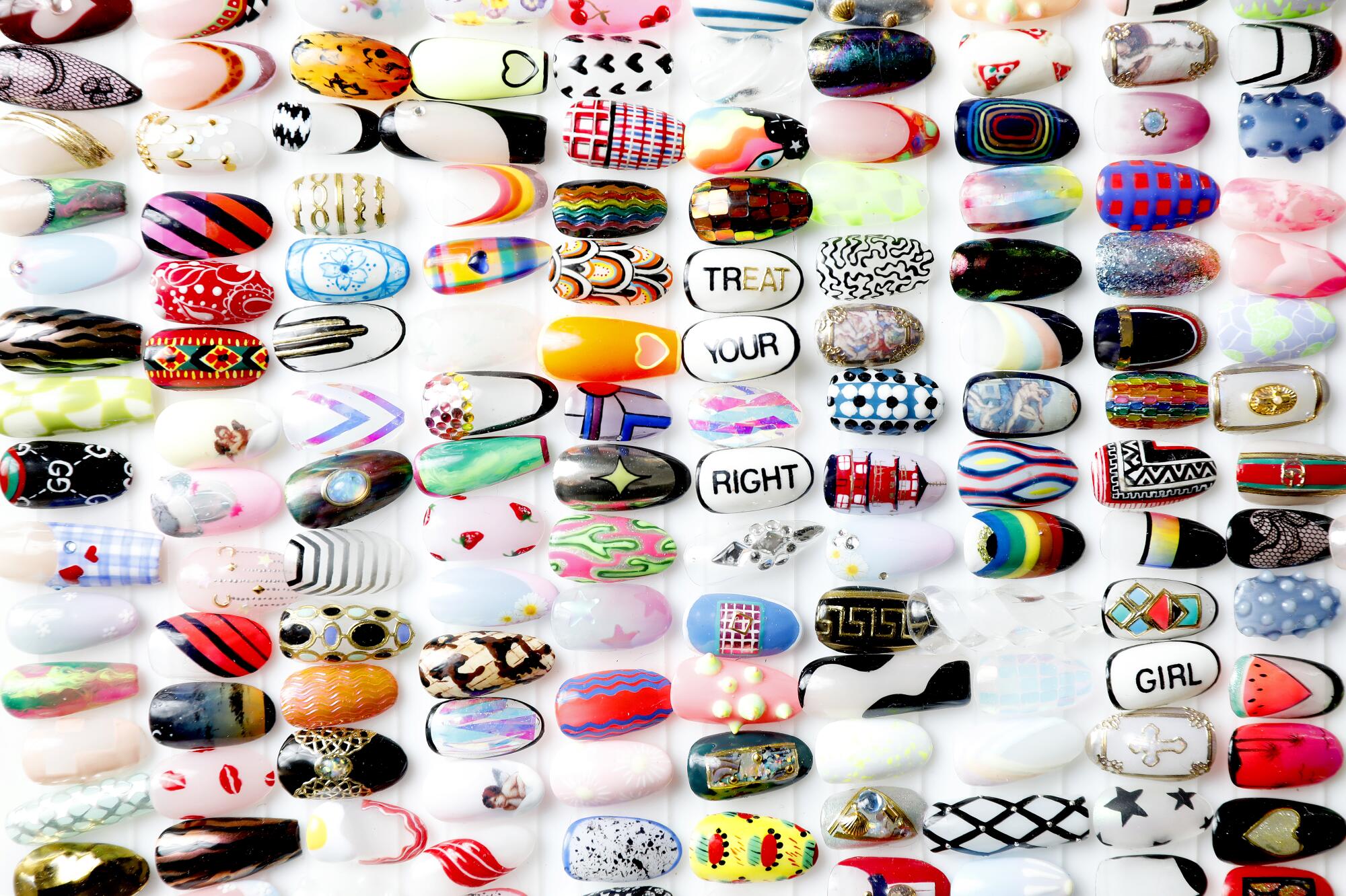
For some, the anxiety of being read as gay can be uncomfortably real when first opening up about their sexuality — a challenge Clarke herself worked through. “In my experience, that has gone away the longer I’ve been out. I always like to say, ‘What people think of me is not my business.’”
Alyssa Blake Nader, a.k.a. @daddydoesnails, a queer nail artist who works in Los Angeles and Oakland, says clients are regularly relieved to connect and have a manicure session guided by someone who understands queer culture and gender journeys through lived experience.
“I’ve had people directly say, ‘I want to do [my] nails in order to explore my queerness and gender identity. I’m so happy I found you,’” says Nader.
One first-time client, who recently gained clarity around being queer and nonbinary, had never explored artificial nails and nail art due to being socialized as a cis male and feeling like it was off-limits.
“They were [at the nail appointment] with their friend and started crying, like, ‘I can have nails? And I can have glitter?’” Nader says of the lightbulb moment. “I did their nails, and they were so happy and thankful to have that affirmed.
“I think, for multiple reasons, people deny themselves it. One is because they’re coming to accept themselves. It does bring attention, so they’ve gotten to a place with their queerness and gender expression where they feel comfortable receiving that attention.”
Where to hang out in Los Angeles when you want to meet queer folks but don’t want to roll up to the usual gay bars and clubs.
Some people may not let themselves enjoy manicures and self-expression in that form because they view manicures as feminine, Nader says. They may think, “That doesn’t go with the gender I’m supposed to have” and “People are going to think of me a certain way — in terms of how our appearance affects how we’re perceived.” Those sentiments can steer the person toward socially acceptable suppression and away from fulfilling exploration and authenticity.
Other clients have enjoyed nail art and queer manicures as a form of purposeful flagging, Nader adds. Then there are those who simply get nails that make them feel good. For example, someone can be “transmasculine and know that having nails doesn’t make them less of a man or girly — it doesn’t have to do with that. It’s like, ‘This is just me.’”
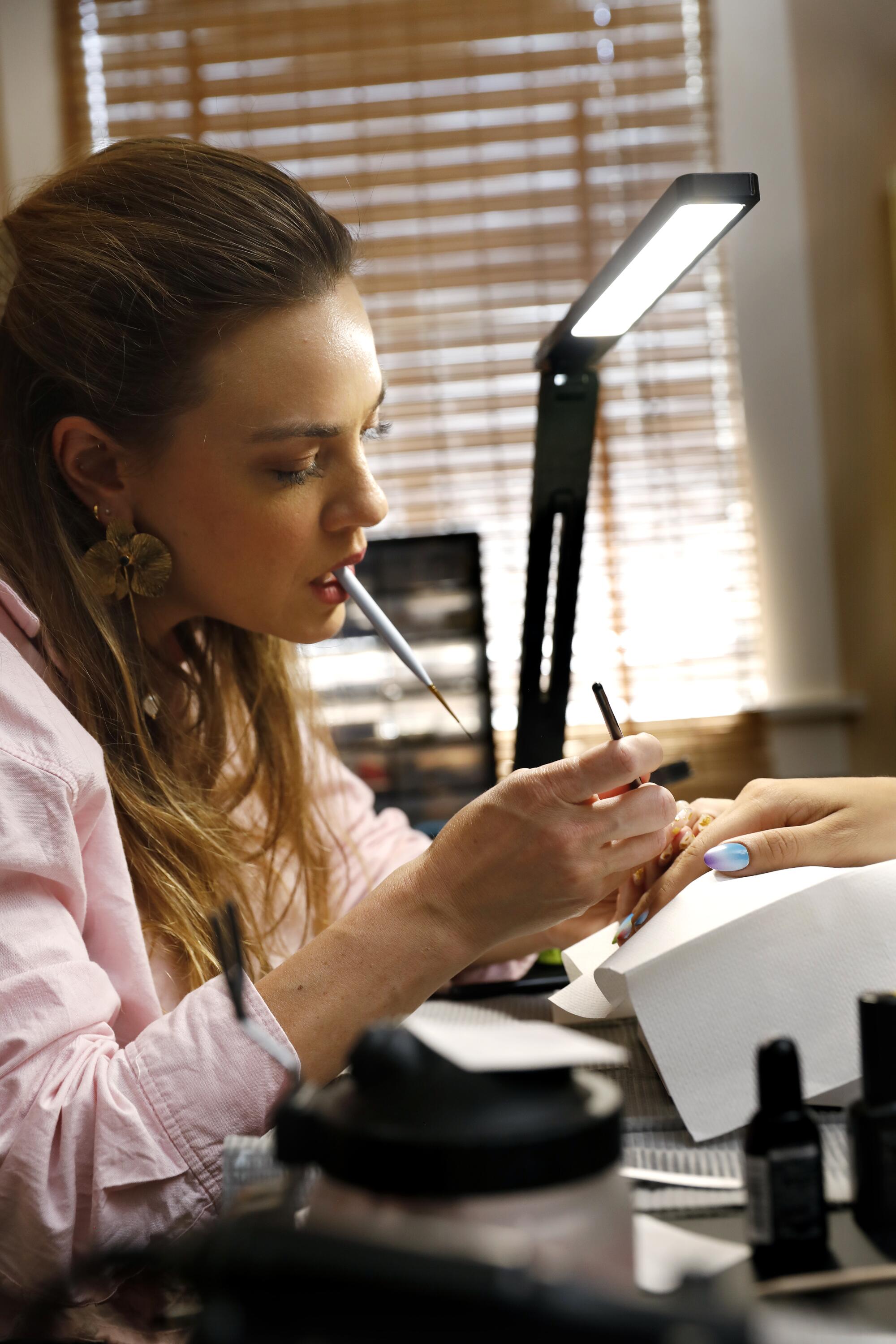
Natalie Minerva, a celebrity nail artist and the manicurist for HBO’s smash hit “Euphoria,” believes making a conscious effort to be as warm and welcoming as possible goes a long way.
“That’s always been my practice, no matter what. Everybody should be able to get their nails done,” says Minerva, who started doing nails 11 years ago. “You shouldn’t feel weird or bad or different just because you want [a particular style], no matter if you’re straight, gay, anything in between. You should be able to get the manicure you want, just because you feel like it and it makes you feel good.”
Minerva has done the queer manicure on such stars as Barbie Ferreira, to the delight of her Instagram followers. Excited comments like “gay rights!” and “the two shorter ones tho 👀” roll in whenever Ferreira makes an appearance on Minerva’s feed donning those nails. Nail art is becoming more personal and more meaningful, Minerva says.
“Nail art is like wearable art. It’s like a tattoo, except the great part is it changes with who you are,” adds Minerva. “You can constantly update it. That’s really the beautiful part of it — it’s ever-changing with your style and your taste and what you identify with.”
More to Read
Sign up for The Wild
We’ll help you find the best places to hike, bike and run, as well as the perfect silent spots for meditation and yoga.
You may occasionally receive promotional content from the Los Angeles Times.
